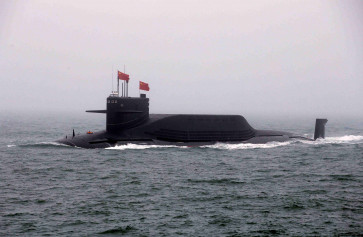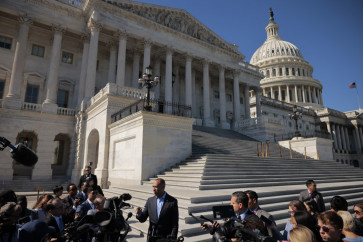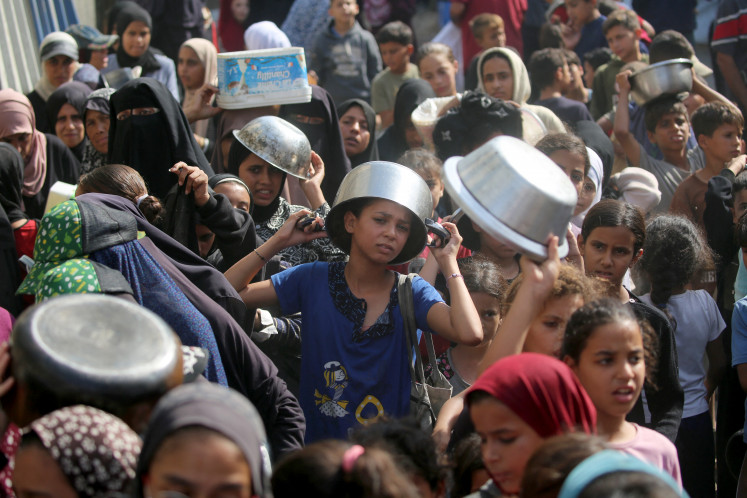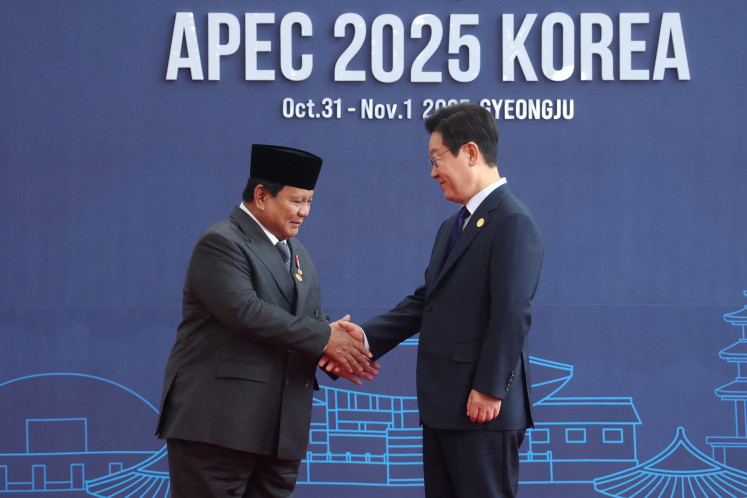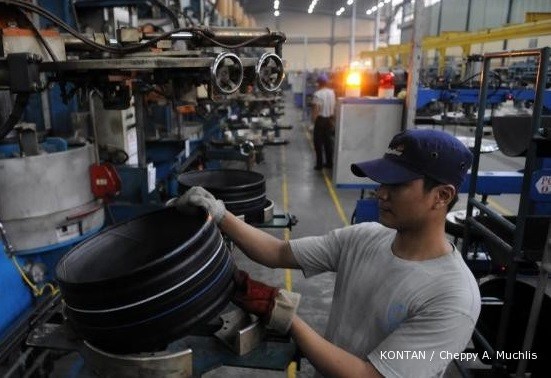Popular Reads
Top Results
Can't find what you're looking for?
View all search resultsPopular Reads
Top Results
Can't find what you're looking for?
View all search resultsPreparing to counter the challenges of deepfakes in Indonesia
The role of state-of-the-art technology like artificial intelligence has thus been peripheral in terms of disinformation in Indonesia so far.
Change text size
Gift Premium Articles
to Anyone
T
he return of Rizieq Shihab, the leader of the Islam Defenders Front (FPI), to Indonesia has sparked a new round of online warfare. Some hardliners believe that the de facto opposition leader is a victim of deepfakes: video and audio content that has been manipulated by artificial intelligence (AI) technology.
In such cleverly edited clips, people are seen doing or saying things they never did or said. An Instagram account has released a YouTube clip where Rizieq derisively called President Jokowi “Jokodok”, calling it a deepfake. Netizens, though, have been quick to question the veracity of the video. The clip was an edited version of a 2015 religious parade where the FPI leader spoke at length about fighting communist and liberal ideologies in the country.
Although it is now clear that the video is neither a deepfake nor has it gained significant traction online, the term “deepfake” itself has been weaponized as disinformation.
Despite not being one, the video still achieved the effect of victimhood by propagating the Islamists’ long-time trope of the government criminalizing the ulama (Muslim clerics). As some like Facebook founder Mark Zuckerberg observed, even crudely altered videos (sometimes termed “cheap fakes”) can be convincing to certain viewers.
Visual disinformation plays into existing echo chambers that could deepen political division. The edited video of Rizieq’s speech, for example, confirms the opposition’s viewpoint that they are under siege, especially in the aftermath of the killing of six FPI supporters.
At the same time, it strengthens the position of the ruling party’s supporters that they have been framed. The result is a political zero-sum game where online clashes interplays with real-life skirmishes, potentially culminating in more violent conflicts.
The role of state-of-the-art technology like artificial intelligence has thus been peripheral in terms of disinformation in Indonesia so far. But not for much longer.
In November, there was evidence of the usage of AI in influence operations that sought to sway sentiment against the Papua issue. The Bellingcat website has identified within the network social media accounts with profile pictures generated by Generative Adversarial Network (GAN), machine learning tools that manufacture fresh pictures out of old ones. The technique is capable of evading reverse image search tools, which are normally used to identify edited photos.
Technological tools to create deepfakes are also becoming increasingly available to ordinary netizens. The fact that many of the codes and methodologies are posted on open source platforms, such as TensorFlow AI and Reddit, means that those with relevant technical skills and interests could be encouraged to experiment with creating deepfakes, eventually leading to improved skills and results.
This means that deepfakes could become increasingly commonplace on social media.
In other parts of Asia, the impact of deepfakes is increasingly felt. In India, deepfake videos urging citizens to vote for the ruling Bharatiya Janata Party (BJP) were circulated via WhatsApp before an election in Delhi.
According to deepfake detection technology firm Deep Trace, deepfakes activities are growing in parts of Asia, targeting individuals in places like Japan, South Korea and India.
Given deepfakes’ traction among the politically conscious, efforts to prevent its misuse should be conducted early. Initiatives to detect deepfake and prevent its misuse should be encouraged in Indonesia. In the Unites States, for example, technology companies like Facebook and Microsoft have collaborated with academic institutions for a Deepfake Detection Challenge.
The AI Foundation, an American AI company, has collaborated with technology companies to launch the Reality Defender 2020, a portal that allows the submission of false content for verification purposes.
While initiatives to prevent the exploitation of deepfakes tend to revolve around significant events like elections, the fight to dominate online narratives after the return of Rizieq to Indonesia showed the value of doing so in other significant political developments as well.
To do so, the cooperation of technology companies is essential. Social media sites like YouTube, Facebook and Twitter have banned deepfakes from their platforms in the lead-up to the 2020 United States presidential election. Such an initiative should be extended to other notable events such as those that could precipitate violent clashes in Asia too.
Some form of regulation, with due care to respecting the freedom of expression, is also necessary for tackling the proliferation of deepfakes. The Cyberspace Administration of China (CAC), for example, required publishers to label AI-created fake audiovisual content and prevent their dissemination.
The US state of California has similarly prohibited deepfakes in times of elections. Preventing the spread of fake content while not stifling artistic expression is a tricky yet necessary move that should be restricted to preventing further dissemination of potentially inflammatory deepfake content.
Whether misinformation/ disinformation is AI-generated or not, the role of effective media and digital literacy for the general public cannot be underestimated. Existing media literacy and fact-checking initiatives such as the Masyarakat Anti-Fitnah Indonesia (Mafindo) and Siberkreasi could continue to play a role in raising public awareness against deepfakes.
Preparing Indonesia to tackle the challenges of deepfakes require cooperation on all fronts: the government, technology companies, academia, and civil society. While there is no easy solution to the problems caused by polarization, intentionally anticipating future modalities of disinformation is itself a step forward.
***
The writer is an associate research fellow at the Centre of Excellence for National Security (CENS), a constituent unit of the S. Rajaratnam School of International Studies (RSIS), Nanyang Technological University (NTU).



